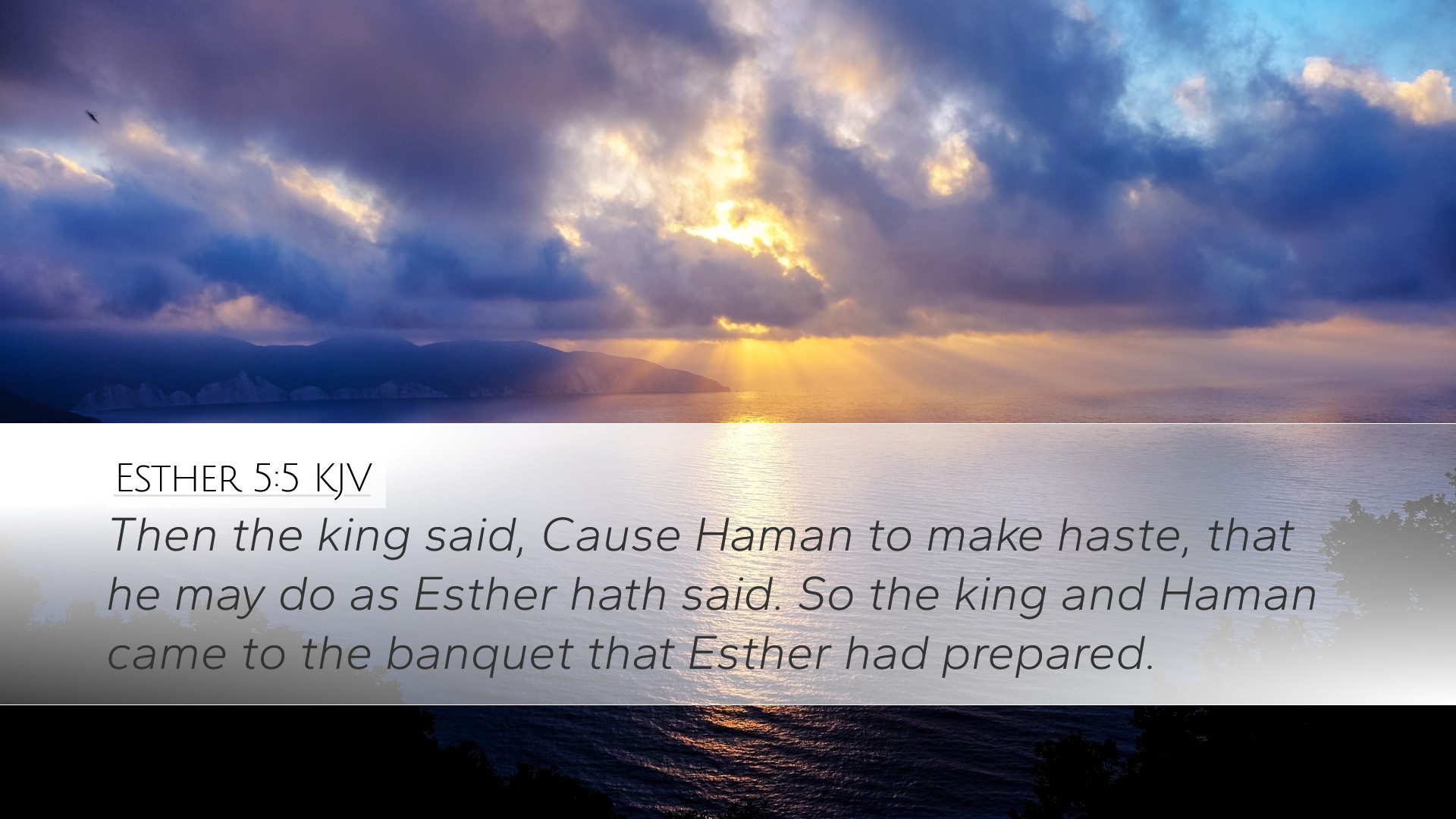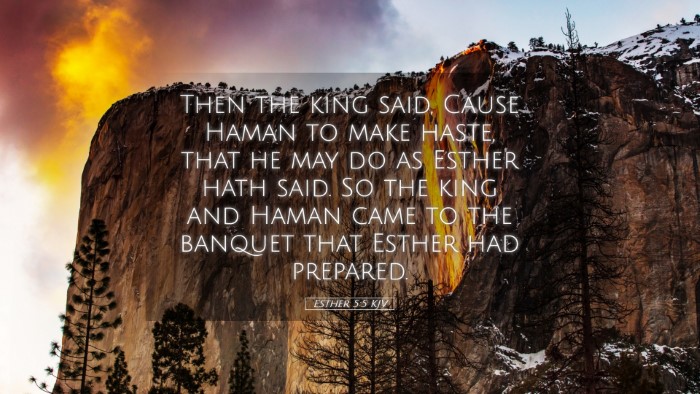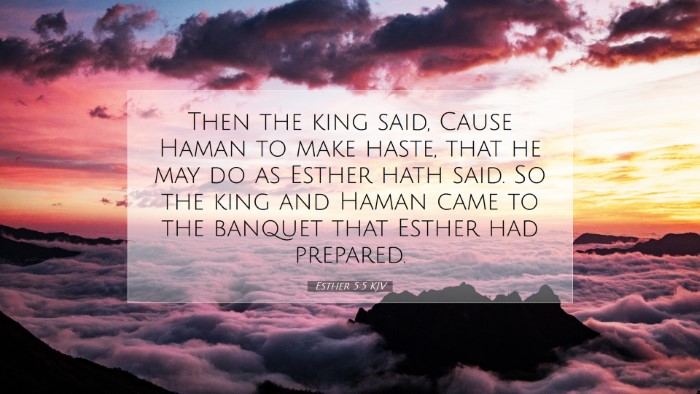Old Testament
Genesis Exodus Leviticus Numbers Deuteronomy Joshua Judges Ruth 1 Samuel 2 Samuel 1 Kings 2 Kings 1 Chronicles 2 Chronicles Ezra Nehemiah Esther Job Psalms Proverbs Ecclesiastes Song of Solomon Isaiah Jeremiah Lamentations Ezekiel Daniel Hosea Joel Amos Obadiah Jonah Micah Nahum Habakkuk Zephaniah Haggai Zechariah MalachiEsther 5:5
Esther 5:5 KJV
Then the king said, Cause Haman to make haste, that he may do as Esther hath said. So the king and Haman came to the banquet that Esther had prepared.
Esther 5:5 Bible Commentary
Bible Commentary on Esther 5:5
Verse Context: Esther 5:5 states, "Then the king said, 'Bring Haman quickly, that he may do as Esther has requested.' So the king and Haman came to the banquet which Esther had prepared."
Introduction
This passage is pivotal within the narrative of Esther, marking an important moment of decision and expression of divine providence. The intertwining actions of Esther and Haman reveal not just personal motivations but divine orchestration in the governance of events. This commentary extracts insights from prominent public domain scholars to deepen understanding of the theological and practical implications of this verse.
Analysis of Characters
Esther: Esther's courage in approaching the king is a highlight of her character. Matthew Henry emphasizes her strategic and humble approach, suggesting her actions demonstrate both faith and wisdom. The choice to host a banquet is significant; it is not merely a social event but a calculated risk that reveals her resolve to intervene for her people.
The King: The king's response illustrates an immediate trust in Esther. Albert Barnes notes that this reflects a relationship built on respect and favor, allowing Esther's requests to gain traction. His quick call for Haman shows his willingness to act, further illustrating the dynamics of power in the Persian court.
Haman: Haman's eager compliance to attend the banquet demonstrates his arrogance and ambition. Adam Clarke remarks that Haman is representative of worldly pride, unaware that he is being drawn into a trap that will lead to his downfall. This builds the tension of the narrative, as the reader anticipates the unfolding of Esther's plan.
Thematic Elements
Divine Providence: All scholars agree on the theme of divine providence in Esther. Haman's unsuspecting position contrasts with Esther’s divine appointment, revealing how God works through human actions. Matthew Henry states that often, human plots can lead to divine purposes being fulfilled, which resonates through the experiences of Esther and the Jewish people.
Courage and Strategy: Esther's action is both a demonstration of immense courage and a strategic move. Barnes highlights the duality of her request; it is a personal appeal and a national advocacy, showcasing that one's position in life can affect broader narratives. This duality is important for leaders today to consider in their pleas for justice and intervention.
Honor and Shame in the Ancient Near East: The culture of honor and shame is significant in understanding Esther's actions. Adam Clarke points out that a refusal by the king would have had dire consequences for Esther and her people, emphasizing the stakes involved in her approach. This awareness of cultural values enriches modern readers' comprehension of the text’s implications.
Practical Applications
From Esther 5:5, modern readers can draw several practical applications:
- Courage in Leadership: Esther's story encourages believers to demonstrate courage when advocating for justice, even in the face of potential peril.
- Strategic Planning: The verse teaches the importance of planning and foresight in leadership. For pastors and leaders, strategic actions can lead to significant impact.
- Trusting God's Timing: The events leading up to this moment remind scholars and theologians of the importance of waiting for God's perfect timing in situations of great significance.
- Relationship Building: The relationship between Esther and the king highlights the importance of trust and how it can create opportunities for advocacy.
Conclusion
Esther 5:5 serves as a profound reminder of the interplay between divine orchestration and human action in biblical narratives. The insights from scholars illuminate the text's richness, urging today's pastors, students, and theologians to glean wisdom from Esther's bravery, Haman's duplicity, and the king's responsiveness. This passage is a call to be bold in advocacy, strategic in approaches, and ever aware of the providential hand of God in orchestrating the events of our lives.


